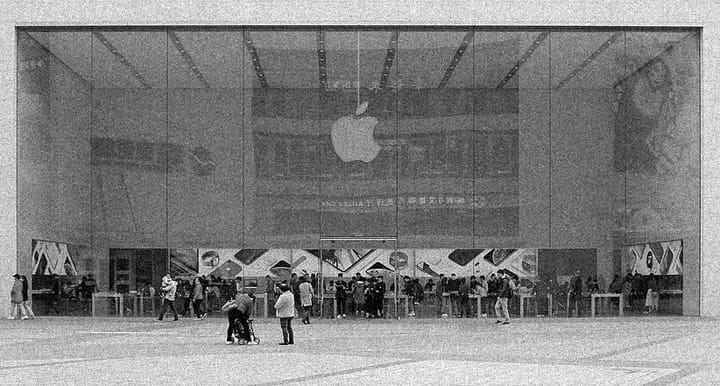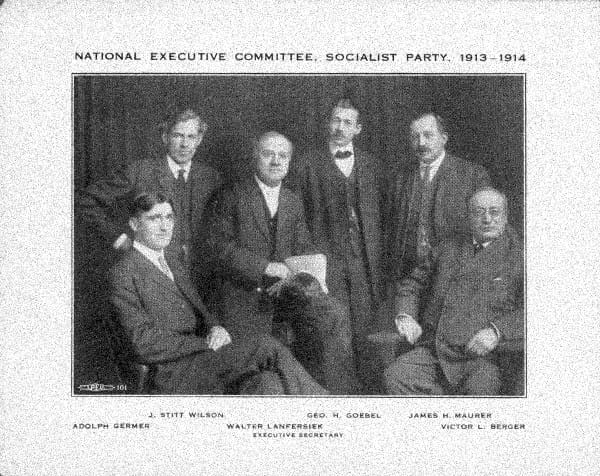Do You Support a Green New Deal?
Well, do you?

My primary reservation with publishing “The Cultural Turn Assigned To The Labor Beat, or the Curious Case of Gabriel Winant” was that Winant was perhaps not actually representative of the type that I call “New Labor Culturalist.” But the reaction to the article confirms that he does capture something about a prominent strain of the left-labor ethos today, whatever one wants to call it.
I have one clarification and one question for this “tendency” then. First, the clarification: the critique offered in my article comes from the Left. I have never even so much as flirted with the new Right (American Affairs, Compact, Unherd, etc.), not because the views published in those publications are necessarily erroneous (it’s a mixed bag), but because their very existence is predicated on the narrowness of the contemporary Left. It is because much of the Left in its current iteration is kind of annoying and broadly inhospitable to critique that heterodox thinkers can be hived off by publications whose mission, stated or not, is to sow confusion about who is on what side. In this sense, n+1 and Compact share an unconscious bond.
Now, to the question: Do you support a Green New Deal? It has been the consistent opinion of this publication that as embarrassing as many Green New Dealers are, the Green New Deal is one of the best ideas the Left has laid claim to in a long time, and that we should stick by it. The Green New Deal is exciting because it lays out a vision for long-term public investment in “greening” the economy through the construction of new public housing, the manufacturing of new electric vehicles and offshore wind turbines, the linking together of a more efficient national grid, etc. This would all involve the creation of precisely the kind of “blue-collar work” that Winant takes to not be “an end in itself” because it is “not… a category of labor for which our economy generates consistent demand.”
Organizing healthcare workers and supporting striking teachers is not what’s at issue here—of course these should be done. What’s at issue is the denigration in Winant’s writing of not just manufacturing, but also construction, transportation… in his characterization, “blue-collar work” as such. (Manufacturing, by the way, still accounts for about 9% of work in the United States, which is way more precarious than it used to be. It also creates forward and backward linkages that radiate throughout the economy, so a flat look at the overall manufacturing share of employment is somewhat misleading for an appreciation of its importance. Service work has always been more plentiful than manufacturing work!)
So which is it? Should we minimize “construction and industrial jobs,” reifying the present coordinates and trends of the service economy to be an inalterable reality upon which a strategy should be built, or should the horizon still be the broad transformation of the economy in the direction needed to meet the threat of climate change—which, yes, would inevitably involve some degree of reindustrialization? If the latter, that means treating blue-collar work in construction and industry as counting amongst “jobs that we do seem to require.”
The accusations of regressive “nostalgia” toward people who think that reindustrialization should be a goal that the Left is pushing for are fair if post-war gender norms, racist and exclusionary practices, or Cold War imperialism are at issue. But we all should be nostalgic for a world that was far less unequal and where working-class institutions had real power. Institutions that have the ability to make the most powerful corporations in the world say “Yes” when they want to say “No” (sorry for the nostalgia) must still be the goal.
But again, the past is not what’s at stake here. The real question is about the constraints on the present. Are we stuck with present conditions? If yes, well, a certain politics flows from this (though even on the terms of this politics, that the top 5 organizing drives in America of 2022 were amongst graduate students should still be worrying). But the Left’s appeal and promise lies in pushing a transformative and progressive vision for society, as embodied in the Green New Deal, and it is worrying that the post-Bernie Left has soured on its possibility.
■
Stuart Thompson has never been to Brooklyn, is not a transplant, and has a specific job but no specific job title.



